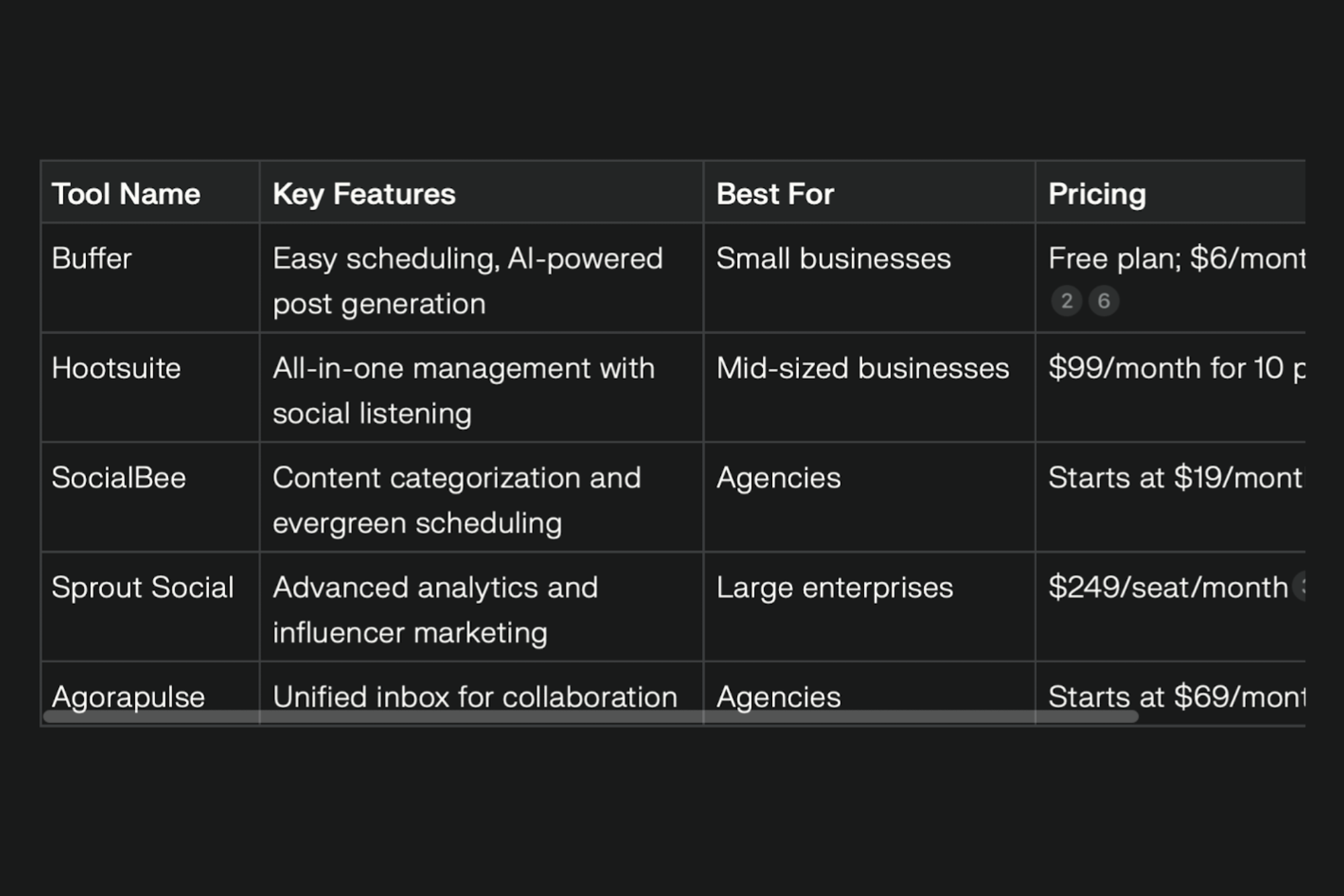Social Media Tools And Strategies
Social media management has become a cornerstone of digital marketing, enabling businesses to connect with audiences, build brand awareness, and drive measurable results. In 2025, managing social media requires a blend of strategic planning, content creation, data-driven decision-making, and the use of advanced tools to stay competitive.
This comprehensive guide explores the essentials of effective social media management.
1. What is Social Media Management?
Social media management involves creating, scheduling, analyzing, and engaging with content posted on platforms like Facebook, Instagram, LinkedIn, TikTok, and Twitter. It encompasses both organic and paid strategies to achieve business goals such as increasing brand visibility, driving traffic, generating leads, or fostering customer loyalty.
2. Key Components of Social Media Management
A. Strategy Development
• Define clear objectives: Examples include increasing website traffic by a specific percentage or boosting engagement by a set target (e.g., 15% growth in likes and shares).
• Align social media goals with broader business objectives such as product launches or event promotions.
• Conduct audience research to understand demographics, preferences, and behaviors.
B. Content Planning and Creation
• Use a content calendar to organize posts around key dates like holidays or industry events.
• Focus on diverse formats such as videos, infographics, carousels, and live streams to keep content engaging.
• Incorporate emerging trends like short-form videos (e.g., TikTok), interactive polls, or AI-generated content.
C. Scheduling and Publishing
• Schedule posts in advance using tools like Buffer or Hootsuite to maintain consistency.
• Balance scheduled posts with real-time updates for authenticity.
• Optimize posting times based on audience activity patterns.
D. Community Management
• Respond promptly to comments and direct messages to foster engagement and build trust.
• Use social listening tools to monitor brand mentions and address customer concerns proactively.
E. Analytics and Reporting
• Track performance metrics such as reach, impressions, engagement rates, click-through rates (CTR), and conversions.
• Use dashboards provided by tools like Sprout Social or SocialBee to analyze trends and refine strategies in real time.
3. Essential Tools for Social Media Management
The right tools can streamline workflows and enhance efficiency.
Here are some toprecommendations for 2025:

These tools help automate repetitive tasks like scheduling while offering insights into performance metrics.
4. Best Practices for Social Media Management
A. Stay Consistent
Consistency is key for maintaining audience engagement:
• Post regularly according to your content calendar.
• Maintain a cohesive brand voice across platforms.
B. Leverage AI and Automation
AI-powered tools can save time while enhancing creativity:
• Use AI to generate captions or repurpose existing content.
• Automate responses for FAQs using chatbots integrated into platforms.
C. Experiment with Content Formats
Content experimentation is crucial in 2025:
• Test new formats like AR filters or 3D posts.
• Monitor performance metrics to identify what resonates most with your audience.
D. Monitor Trends
Stay ahead by incorporating trending topics or formats into your strategy:
• Use social listening tools to identify emerging conversations relevant to your brand.
• Adapt quickly to platform algorithm changes.
E. Measure What Matters
Focus on actionable metrics:
• For engagement: Track likes, shares, comments.
• For lead generation: Monitor CTRs or conversions from gated content.
• Regularly review reports to refine your approach.
5. Challenges in Social Media Management
Despite its benefits, social media management comes with challenges:
1. Platform Overload: Managing multiple accounts can be overwhelming without proper tools.
2. Algorithm Changes: Frequent updates can disrupt visibility; staying agile is critical.
3. Content Fatigue: Audiences may disengage if content lacks variety or relevance.
To overcome these challenges:
• Use all-in-one tools like Sprout Social for seamless management across platforms.
• Build flexibility into your strategy to adapt quickly to changes.
6. The Future of Social Media Management
In 2025, several trends are shaping the future of social media management:
1. Generative AI: AI tools are revolutionizing content creation by generating posts tailored to audience preferences.
2. Social Commerce: Platforms like Instagram and TikTok are integrating shopping features directly into posts.
3. Sustainability Messaging: Brands are focusing on eco-conscious campaigns that resonate with modern consumers.
Conclusion
Effective social media management requires a balance of strategic planning, creative execution, and data-driven optimization. By leveraging advanced tools, staying consistent with your messaging, and adapting to emerging trends, you can build a robust social media presence that drives meaningful results for your business.
Whether you’re a small business owner or part of a large enterprise team, investing in the right strategies and technologies will ensure your social media efforts remain impactful in the dynamic digital landscape of 2025.

